Taylor Swift rewrites UK Official Chart history this week as her rerecorded album Fearless (Taylor’s Version) lands at Number 1 on the Official Albums Chart
Read Morenzezmtqxmzatyzcyni00ntmyltk0n2etmmm2zdc0mmm4ywjinwy1ymi5nweymtaxzg
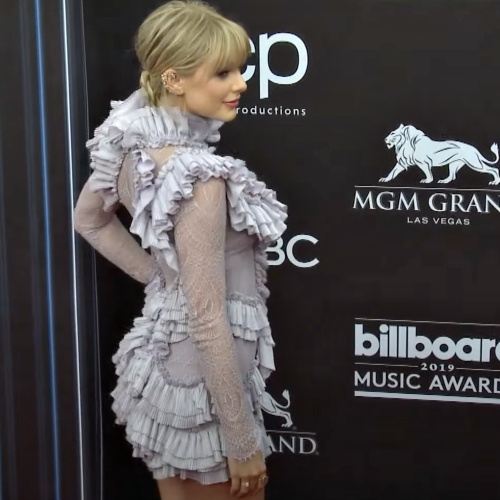

Taylor Swift rewrites UK Official Chart history this week as her rerecorded album Fearless (Taylor’s Version) lands at Number 1 on the Official Albums Chart
Read Morenzezmtqxmzatyzcyni00ntmyltk0n2etmmm2zdc0mmm4ywjinwy1ymi5nweymtaxzg

Taylor has since set a record.
Read Morenzezmtqxmzatyzcyni00ntmyltk0n2etmmm2zdc0mmm4ywjinwy1ymi5nweymtaxzg
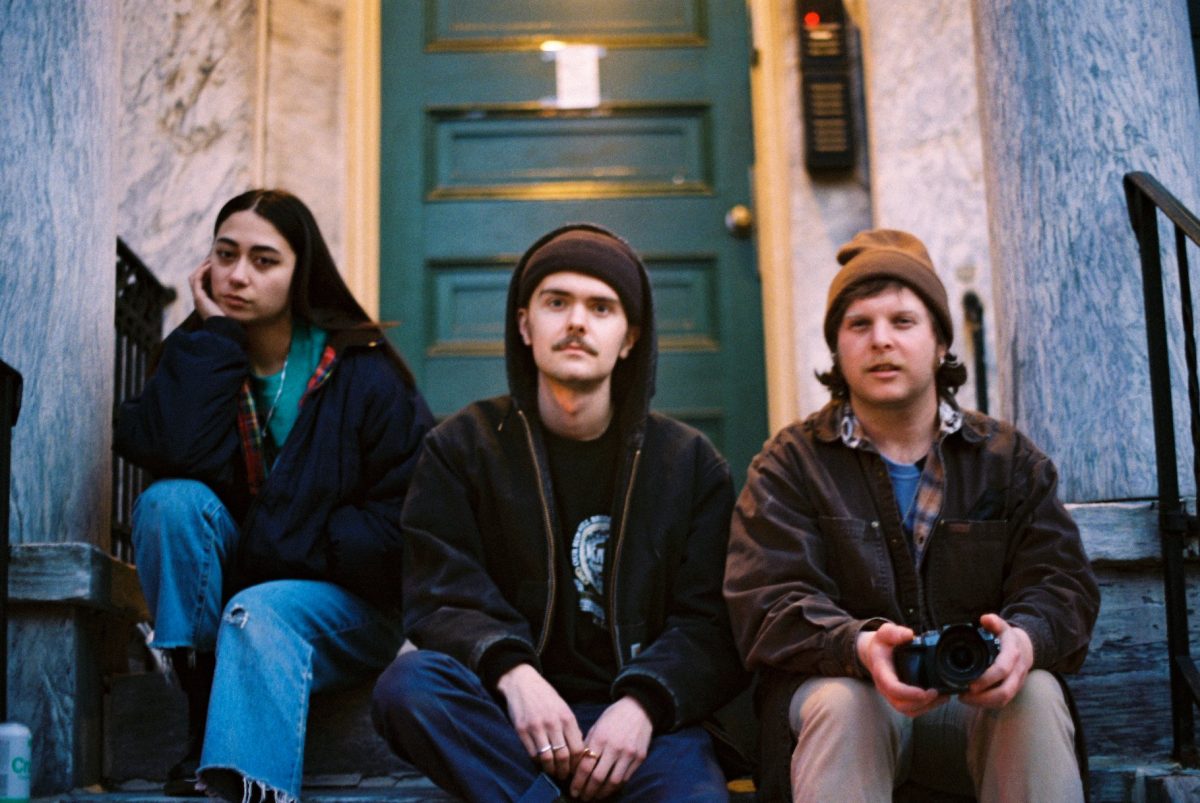
Exporing the challenging, thrilling world of ‘ENTERTAINMENT, DEATH’…Spirit Of The Beehive are putting you to the test. At least, that’s how it feels. See, even before you’re introduced to a note of melody on ‘ENTERTAINMENT, DEATH’ – the fourth album by the Philadelphia-based rock outfit – you first experience a fifty-second squall of noise.
You can bail here, if you want.
But what you’d miss is an album that takes you down a bizarre, confounding, utterly riveting rabbit hole, beginning with the track ‘ENTERTAINMENT’ in which supposedly we experience the narrator’s death in a highway wreck. Whether every track we hear thereafter is a hallucination in his dying moments is unclear, but it sure would make sense. It feels like a hallucination. Either way, making records that’ll make you say ‘Huh?’ as you reach for the repeat button is just how Spirit Of The Beehive operate.
“People either really hate it or really like it. There doesn’t seem to be an in-between.”
That’s Zack Schwartz talking, the band’s creative engine and de-facto frontman, as he sits sandwiched on a couch in his Philadelphia apartment between his bandmates, bassist/vocalist Rivka Ravede and multi-instrumentalist Corey Wichlin.
Originally, Schwartz is from Miami, where he formed the emo band Glocca Morra while still in high school; eventually, the whole band decamped to Philadelphia in search of a more thriving music community. Meanwhile, Ravede, who had been introduced to punk growing up in suburban central Florida, ended up in Philly too. She met Schwartz while job-hunting on her first day in the city; through laughter, she recounts, “I was filling out an application at an Urban Outfitters that Zack was working at and he was really rude to me.” Shortly after, they began dating.
– – –
– – –
Though Glocca Morra became a cornerstone of the flourishing early-2010s Philadelphia emo scene, with their 2012 LP ‘Just Married’ often cited as a classic, their collective enthusiasm started waning after a while. “We were such a lazy band, we just never toured and we declined every offer we got for basically anything. We just didn’t feel like doing any of that shit,” says Schwartz. He was losing interest in their musical direction, too, and feeling an itch to begin a project more akin to what he listened to day-to-day; weirder, noisier stuff.
One day, when band practice got cancelled again for the nth time in a row, Schwartz suggested to Ravede that they practice some music of their own. Eventually, they named themselves The Spirit of the Beehive (they’d drop the ‘the’ later), after the 1973 Spanish movie about a young girl who becomes obsessed with Frankenstein’s monster. “We just wanted to be really loud,” said Schwartz. “[Then] we started to hate it, ‘cause it hurts your ears, and we all have tinnitus and shit.”
The new band made their debut with a 2014 self-titled record, but they really established themselves with 2017’s ‘Pleasure Suck’ – a murky, grimy lo-fi effort – and 2018’s ‘Hypnic Jerks’ – a dreamlike, psychedelic experience. After ‘Hypnic Jerks’, artists such as Mitski and Frank Ocean were repping Spirit of the Beehive, and a dedicated word-of-mouth network sprung up around the band, but it didn’t translate to feverish press coverage or indie darling status. ““The expectations were so low at every show that we ever played,” laughs Ravede. “So it was like, if we ever played headlining shows, and there were people there to see us, I would be like, ‘This is crazy, there’s people here!’” The term may be somewhat cliche, but here really was a cult band; if you were in the know, you were in the know.
Before work started on ‘ENTERTAINMENT, DEATH’, Wichlin joined the band, while drummer Pat Conaboy and guitarist Kyle Laganella left, leaving the previously five-piece stripped down to three. “It’s been a little easier with less cooks in the kitchen,” Schwartz acknowledges. “It’s easy to have someone be like, ‘This is a bad idea’, or ‘This is a good idea’, without going too far down a fucking rabbit hole, and then you end up with a huge project and you have to just keep stripping away parts. Which is kind of how every Spirit song is anyway. But it’s a lot easier now to decide what works and doesn’t.”
– – –
– – –
The other big change in how they worked was a universal and catastrophic one, since this was early 2020, and they found themselves for the first time embarking on making a record remotely. Schwartz and Ravede, who live together, recorded from their apartment and emailed files back and forth with Wichlin, who worked from the basement of his house. You wouldn’t know from hearing it that it was made from a distance, though you wouldn’t necessarily assume they were in the same room either; the physical element of making this record feels a good few steps away from what we end up hearing, since parts are so often torn apart and modified and sewn back together different like a glorious Frankenstein’s monster anyway.
It was the first time they had self-engineered, produced and mixed too, which, paired with the lack of time constraints, left the already-experimental band with the most room to experiment they had ever had. They hadn’t planned to make their most extreme and intense album yet, but it was what they ended up with. “I never know what’s gonna happen. I have no idea what these fucking records are gonna sound like,” says Schwartz. “Once this one was done, I was just like, ‘Oh, shit.’ It was just kinda bizarre; I was kind of incredulous, I guess. I was like, ‘I don’t know how this happened, but it’s definitely a record.’”
Their experimentation extended beyond the writing and recording process; the record was constantly evolving in every phase of creation, with songs changing entirely between production and mixing. “This is the first band that I’ve been in where the mixing process is not just making sure that everything fits well, it’s still part of the production of the song,” says Wichlin. “The song is not the song until mixing’s done, even structurally.” “It’s not even done until mastering is done,” Schwartz interjects.
“These songs probably had so many more elements than what ended up being on the record, ‘cause you can just try a million things and figure out what works,” Schwartz adds. “And I’m sure they could have been even weirder, but we pared it down towards the end.” “That’s true,” says Ravede. “Sometimes you’ll go so intense with layering different things – like, when we were doing the mix notes, they were both doing very technical stuff about the sound, and I said, ‘This sounds like – it makes me sick’.” She laughs. “It’s like in Silicon Valley, when they make that incredible platform, and they’re like, ‘Did you show this to any normal people, or…?’”
“In the end, it all comes down to if Rivka thinks it’s cool or not,” says Schwartz, to a laugh from Ravede.
“I think that we work well together because none of us are super precious about things,” says Wichlin. “It’s not like someone writes a part or wants to add something, and then if everyone else says no they’re gonna get offended; we’re all aware of serving the greater good of the song or the album.” Ravede adds, “And I think we all respect each other’s tastes, and trust everyone’s instincts. I feel like as this iteration of the band, it’s all pretty symbiotic.”
– – –
– – –
From the beginning of the process, Schwartz had the title and thematic arc of ‘ENTERTAINMENT, DEATH’ in mind, based on a thought process that had been spurred by the onset of the pandemic and the departure of two band members. “I was thinking about how it seems like unless you’re constantly putting out content, you’re basically fucked,” he explains. “You gotta keep putting out shit. You gotta maintain some sort of ridiculous work ethic and relevance. And how difficult that is if you wanna try to remain genuine.” The two words and the album itself function as a bleak, cynical distillation and satire of the ultimate role of an artist under capitalism; you live to entertain, and then you die.
Yet musically, the album rejects that ethos by presenting a more challenging experience than simple entertainment. These songs aren’t here to give a listener what they want, let alone expect. Like ‘ENTERTAINMENT’, the opening track, after the opening noise barrage gives way into the song proper; what your ears want to hear is something pleasant, with its gently sung melody and synthesised string accents, but the electronic murmurs beneath breathe a darkness into it. That song leads straight into ‘THERE’S NOTHING YOU CAN’T DO’, which is recognisable as a sort of dance track, but with an inexplicable and exponentially building unease to it. It sounds like being on the dance floor in Hell. Tracks like ‘GIVE UP YOUR LIFE’ and ‘IT MIGHT TAKE SOME TIME’, meanwhile, play with pitch to create a sensation of “drowning”, as Ravede puts it. To disorient and unnerve seems to be the MO that threads every song together.
The band regard the penultimate track ‘I SUCK THE DEVIL’S COCK’ as the album’s magnum opus. It’s a close to seven-minute long odyssey that cycles between snarled, frenetic rave-punk, laid-back psychedelic pop, ambient noise and a grand piano rock ending. They envisioned it as their answer to the Beatles’ ‘A Day In The Life’. Schwartz explains, “It’s kinda like the theme of the record – constant performance, required content. And then the idea was that in the middle of the song, this person hears – kinda meta – a song on the radio, and it’s the part that Rivka sings. And then at the end, this person just straight up dies.”
“That one took so long to compose. And my Ableton was crashing every fucking thirty seconds. To pare it down into one project file was almost impossible.”
– – –
– – –
Appropriately for a band named after an arthouse film, there’s a cinematic influence across the record. Schwartz cites Taxi Driver as a source of inspiration for the feel of the album; “Grimy, but super pretty.” Synecdoche, New York, meanwhile, is a long-standing reference point for the band; Ravede claims they’ve referenced it on almost every album they’ve made. “They put me onto that movie; I had never seen it,” says Wichlin. “During the process of making this record, that definitely hit me pretty heavily.” Musically, they find it harder to say; Schwartz consciously avoided listening to music during the creative process. But an ‘Inspo’ playlist the band recently posted on Spotify ranges from Charli XCX to Daughters, Oneohtrix Point Never to The Beatles, Sonic Youth to Slayer.
The notion that these tracks were in some sense created with a pop ear seems odd on first listen, but with each play those pop ideas unfurl themselves, becoming clearer the more you get past the bewilderment and form a roadmap of Spirit of the Beehive’s world. This is an album that you have to engage with on its own terms, because your preconceived ideas of how pop music works and why it’s fulfilling aren’t any use here. The uncanny valley of it all, like it’s a dream’s reconstruction of pop music, just makes the record all the more compelling once you make sense of it.
“It’s interesting to see how far you can push something that has a hook or a pop structure in the other direction, and combine it with elements that would not typically fit within a pop song,” Wichlin says. Schwartz explains, “We very rarely repeat parts in a song. I like the idea of dangling something catchy for the listener, and then immediately just being like, ‘Nah, fuck it. That part’s over.’”
“I don’t think we want to make the listener have to do, like, homework,” he continues. “[But] I would hope that the music is something that requires a certain level of attention. I know the general listener might have a shorter attention span these days, but I would hope it’s a rewarding experience, if you listen to it once, twice, or three times.”
Wichlin expands, “It is like world building to me. It’s creating a world and then letting a listener explore it as they will, and putting enough stuff in there that they can come back to that world and find different things each time.”
“Nothing is intentionally weird or experimental,” Schwartz claims. “Or at least, I don’t think we go into any project thinking like, ‘We’ve gotta push some boundaries’.” Ravede says, “We’ve never been trying to be weird or confusing, confounding, whatever. It’s just the direction that Zack goes in when he’s writing songs.” As an explanation for why exactly that is, Schwartz offers, “It’s fun to just be like, ‘How did we do that?’”
In the album’s press release, Ravede paraphrases a quote from the Bee Gees documentary, How You Can Mend A Broken Heart, that resonated with her. “We may not have always connected, but we always stuck around.” Is connection what they’re looking for, I ask? “I think everybody does. That’s what everybody wants,” Ravede answers matter-of-factly. It’s funny, then, that their music is easily interpreted as hostile, like they’re daring you to walk away, like they don’t give a fuck if you can even understand what you’re hearing, let alone like it. But that’s precisely what’s inviting to those who are in the Beehive cult; you have to work to form that connection, and once you do, it’s infinitely rewarding. To their small yet growing band of die-hards, this is a connection born not of simple enjoyment, but total immersion.
“Maybe the music we make is challenging, but I don’t think we could really do it any other way,” says Schwartz. “It would be great if it catches on, I guess. But it’s never gonna be different. It’s always gonna be an experience.”
– – –
https://spiritofthebeehive.bandcamp.com/album/entertainment-death" href=”https://spiritofthebeehive.bandcamp.com/album/entertainment-death">ENTERTAINMENT, DEATH by SPIRIT OF THE BEEHIVE
– – –
‘Entertainment, Death’ is out now.
Words: Mia Hughes
Photo Credit: Peggy Fioretti
Join us on the ad-free creative social network Vero, as we get under the skin of global cultural happenings. Follow Clash Magazine as we skip merrily between clubs, concerts, interviews and photo shoots. Get backstage sneak peeks, exclusive content and access to Clash Live events and a true view into our world as the fun and games unfold.
Buy Clash Magazine
Read Morenzezmtqxmzatyzcyni00ntmyltk0n2etmmm2zdc0mmm4ywjinwy1ymi5nweymtaxzg
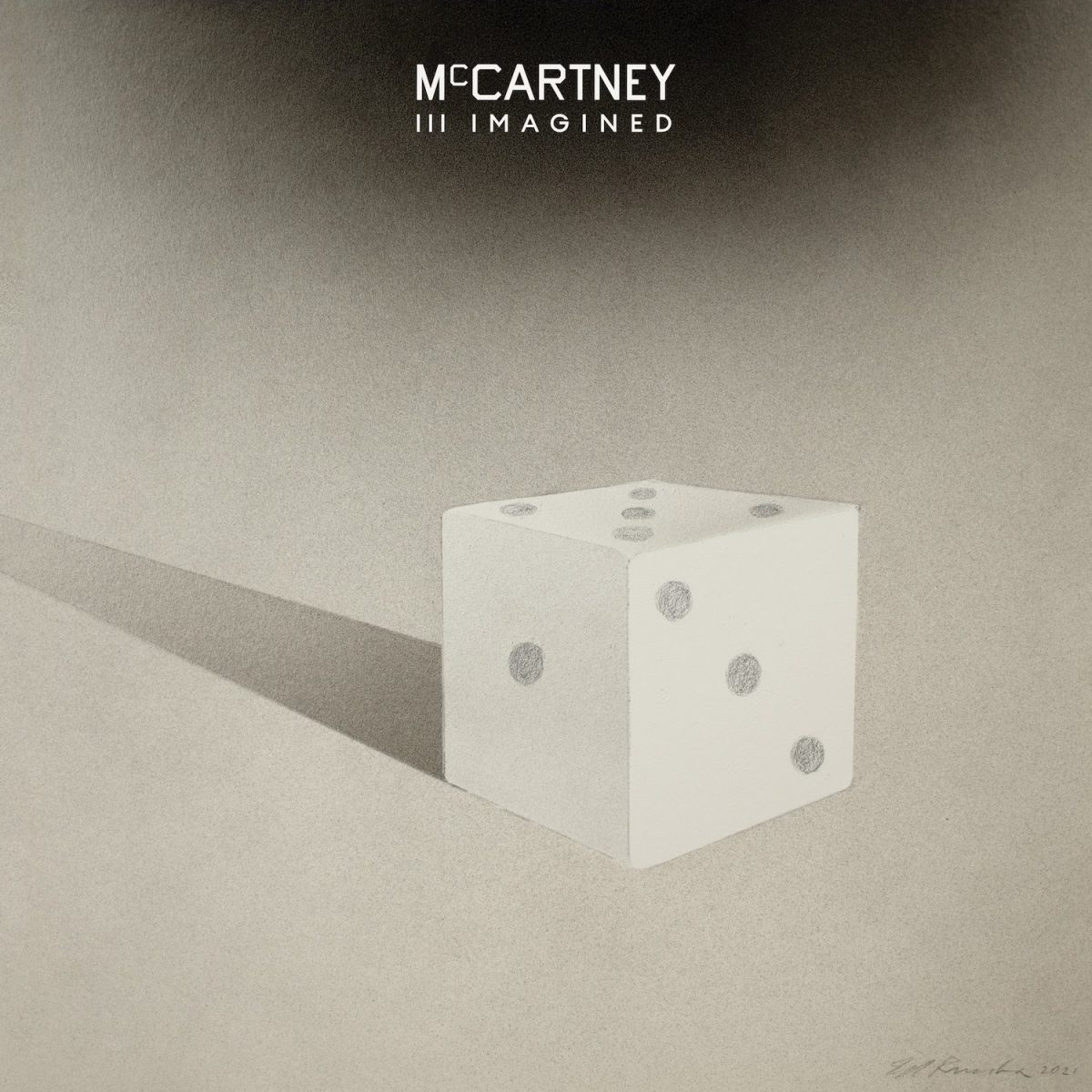
A fascinating, truly enjoyable selection of alternative takes from an all-star cast…Paul McCartney’s ongoing creative luminescence is truly exceptional. Whereas peers such as Eric Clapton and Van Morrison find themselves at loggerheads with the world, Macca’s joi de vivre and thumbs up positivity has become the perfect lockdown antidote.
Last year’s home-recorded ‘McCartney III’ was a wonderful DIY song cycle, slowing an ad hoc triptych that spans 1970’s ‘McCartney’ and 1980’s ‘McCartney III’. Fun and full of vim, ‘McCartney III’ proved that his undoubted gift with melody – not for nothing does the phrase ‘McCartney-esque’ stand as such high praise – remained undaunted, matched with a passion for experimental whimsy.
‘McCartney III Reimagined’ features a hand-picked cast giving the songs on the home studio album a once over. Pleasingly diverse, it finds Sir Paul hanging over the tapes to some truly incredible artists – indeed, it’s probably time to chalk ‘curatorial abilities’ on the lengthy list of things the Beatles icon excels at.
Beck’s bubbling, immediate, and really-rather-funky take on ‘Find My Way’ opens the set, before pop auteur Dominic Fike has his wicked way with ‘The Kiss Of Venus’. Both are rather faithful interpretations, but often it’s when guest depart from the core text that ‘McCartney III Reimagined’ becomes truly enlightening.
Take the gloriously chilled out funk of Khruangbin, who are left free to tease ‘Pretty Boys’ out to such dynamic lengths. EOB – in reality Radiohead’s Ed O’Brien – delivers a full throttle nu metal nuclear explosion with his take on ‘Slidin’ while Massive Attack producer 3D explodes ‘Deep Deep Feeling’ on the 10 minute finale.
Implausibly diverse, ‘McCartney III Reimagined’ is able to move from Josh Homme’s bluesy strut ‘Lavatory Lil’ to a pleasingly sweet, entirely heartfelt Anderson .Paak take on ‘When Winter Comes’. The peaks, however, arguably come from the hands of two female artists: St. Vincent’s gloriously luxurious ‘Women And Wives’ preens its way to a spasmodic guitar solo, while Phoebe Bridgers tantalising take on ‘Seize The Day’ proves that her golden run is showing no signs of slowing down.
Remix albums are often – truth be told – an absolute chore, a hangover from the 90s era of 17 quid compact discs. This reiminaging, however, serves of noble dual task – it illustrates Paul McCartney’s continued creative relevance to artists a third of his age, while also underlining the craftmanship that went into last year’s ‘McCartney III’. Not an essential listen, perhaps, but one that will fascinate and intrigue fans.
8/10
Words: Robin Murray
– – –
– – –
Join us on the ad-free creative social network Vero, as we get under the skin of global cultural happenings. Follow Clash Magazine as we skip merrily between clubs, concerts, interviews and photo shoots. Get backstage sneak peeks, exclusive content and access to Clash Live events and a true view into our world as the fun and games unfold.
Buy Clash Magazine
Read Morenzezmtqxmzatyzcyni00ntmyltk0n2etmmm2zdc0mmm4ywjinwy1ymi5nweymtaxzg
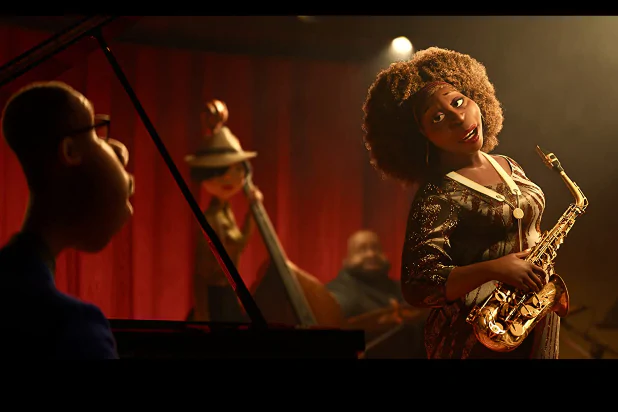
The music supervisors for “Soul,” “Ma Rainey’s Black Bottom” and “Promising Young Woman” won awards at the 11th annual Guild of Music Supervisors Awards, which took place in a virtual ceremony Sunday evening.
Tom MacDougall won for “Soul” in the Best Music Supervision for Film Budgeted Over $25 Million category. Dawn Sutter Madell won for “Ma Rainey” in the category for films under $25 million, Susan Jacobs won for “Promising Young Woman” for films under $10 million and Dondrea Erauw won for “The Cuban” for films budgeted under $5 million.
Daniel Pemberton and Celeste’s Oscar-nominated song “Hear My Voice” from “The Trial of the Chicago 7” won in the Best Song Written and/or Recorded for a Film category, in which it was not competing against any of the other Oscar song nominees.
Also Read: Forget the Beatles: Daniel Pemberton Wrote a New Song for ‘Chicago 7’ Instead of the Fab Four
In the television categories, winners included the music supervisors of “Watchmen,” “High Fidelity,” “Insecure,” “The Marvelous Mrs. Maisel,” “The Masked Singer” and “To All the Boys: P.S. I Still Love You.”
Trent Reznor and Atticus Ross won the award for a song written and recorded for television for “The Way It Used to Be” from “Watchmen.”
Other awards went to “Crip Camp” and “The Last Dance,” the trailer for “Judas and the Black Messiah” and the video game “Tony Hawk’s Pro Skater 1+2.”
Also at the ceremony, Quincy Jones received the Icon Award and received a special tribute from Stevie Wonder, while longtime music supervisor and GMS founding president Maureen Crowe received the Legacy Award.
Also Read: Trent Reznor and Atticus Ross ‘Desperately’ Want to Get Back Onstage as Nine Inch Nails
Presenters and performers included Billie Eilish and Finneas O’Connell, Andra Day, Mary J. Blige, Bryan Cranston, Clive Davis, Regina King, John Legend, Regina King and Diane Warren.
The full list of winners:
FILM
Best Music Supervision for Film Budgeted Over $25 Million: Tom MacDougall, “Soul”
Best Music Supervision for Film Budgeted Under $25 Million: Dawn Sutter Madell, “Ma Rainey’s Black Bottom”
Best Music Supervision for Film Budgeted Under $10 Million: Susan Jacobs, “Promising Young Woman”
Best Music Supervision for Film Budgeted Under $5 Million: Dondrea Erauw, Michael Perlmutter, “The Cuban”
Best Song Written and/or Recorded for a Film:
“Hear My Voice” from “The Trial of The Chicago 7”
Writer: Celeste Waite, Daniel Pemberton
Performed By: Celeste
Music Supervisor: Peter Afterman, Alison Litton
TELEVISION
Best Music Supervision – Television Drama: Liza Richardson, “Watchmen” Season 1
Best Music Supervision – Television Comedy or Musical: – THREE-WAY TIE
Manish Raval, Alison Rosenfeld, Tom Wolfe, “High Fidelity” Season 1
Kier Lehman, “Insecure,” Season 4
Robin Urdang, “The Marvelous Mrs. Maisel,” Season 3
Best Music Supervision – Reality Television: Meryl Ginsberg, “The Masked Singer,” Season 3
Best Music Supervision – Television Movie: Warren Fischer, Laura Webb, Lindsay Wolfington, “To All the Boys: P.S. I Still Love You”
Best Song Written and/or Recorded for Television:
Title: “The Way It Used to Be” from “Watchmen”
Songwriters: Trent Reznor, Atticus Ross
Artists: Trent Reznor and Atticus Ross
Episode: #106 “This Extraordinary Being”
Music Supervisor: Liza Richardson
Also Read: Ted Cruz Bizarrely Invokes Thanos and ‘Watchmen’ to Attack Environmentalists
DOCUMENTARIES
Best Music Supervision for a Documentary: Aminé Ramer, “Crip Camp”
Best Music Supervision in a Docuseries: Rudy Chung, “The Last Dance”
TRAILERS
Best Music Supervision in a Trailer: Mike Lynn, “Judas And The Black Messiah”
ADVERTISING
Best Music Supervision in Advertising (Synch): Andy Hamm, Apple “A Journey Into The Valley Of Fire – Shot on iPhone”
Best Music Supervision in Advertising (Original Music): Mike Ladman, Hennessy “Maurice And The Black Bear School”
VIDEO GAMES
Best Music Supervision in a Video Game: Eric Kalver, Brandon Young – “Tony Hawk’s Pro Skater 1+2”
Related stories from TheWrap:’Nomadland’ Wins Big at BAFTA Awards – Complete List of WinnersThe Weeknd Dominates iHeartRadio Music Awards Nominations Following Grammy SnubChloe Zhao Wins Directors Guild Award for ‘Nomadland’ – Complete List of Winners
Read Morenzezmtqxmzatyzcyni00ntmyltk0n2etmmm2zdc0mmm4ywjinwy1ymi5nweymtaxzg
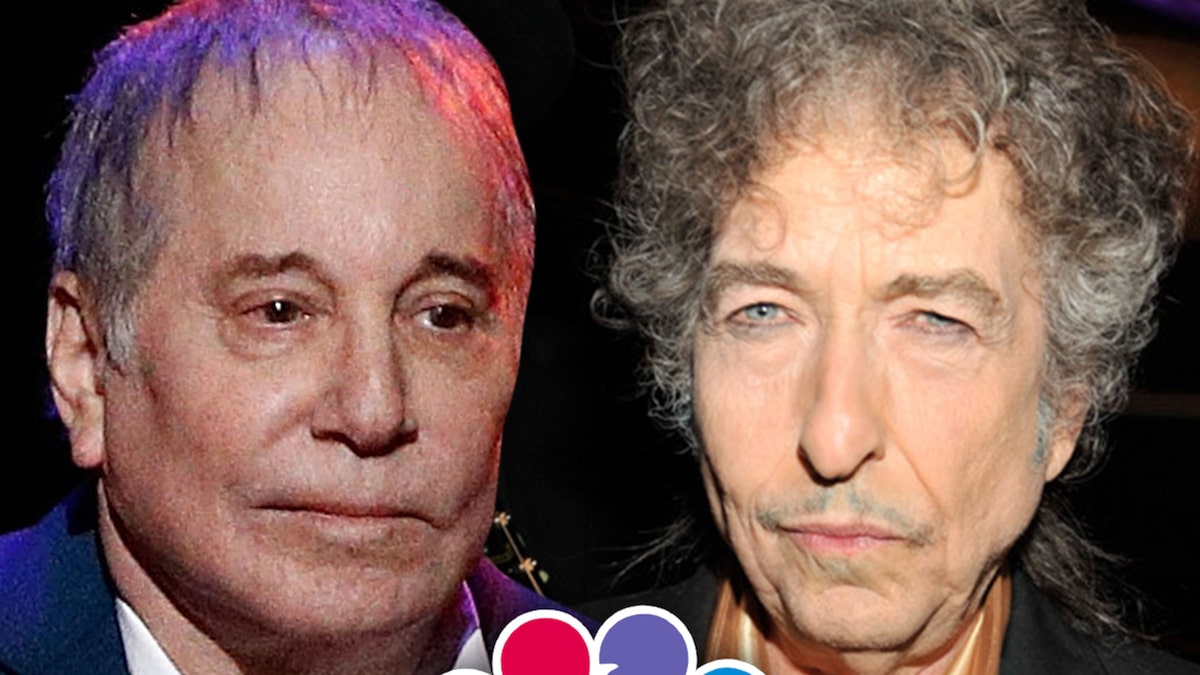
Paul Simon will be a forgotten name in the history books when scholars look back on 20th-century music and see only Bob Dylan and The Beatles standing tall — that’s the polarizing take of one NBC writer, anyway. Jeff Slate — a NYC-based…
Read Morenzezmtqxmzatyzcyni00ntmyltk0n2etmmm2zdc0mmm4ywjinwy1ymi5nweymtaxzg

From teaming up with fellow greats like Santana, JJ Cale and Buddy Guy to an uncredited appearance on a song by the Beatles, the legendary guitarist always added magic
The post Eric Clapton: 10 Legendary Collaborations appeared first on My Site.
Read Morenzezmtqxmzatyzcyni00ntmyltk0n2etmmm2zdc0mmm4ywjinwy1ymi5nweymtaxzg
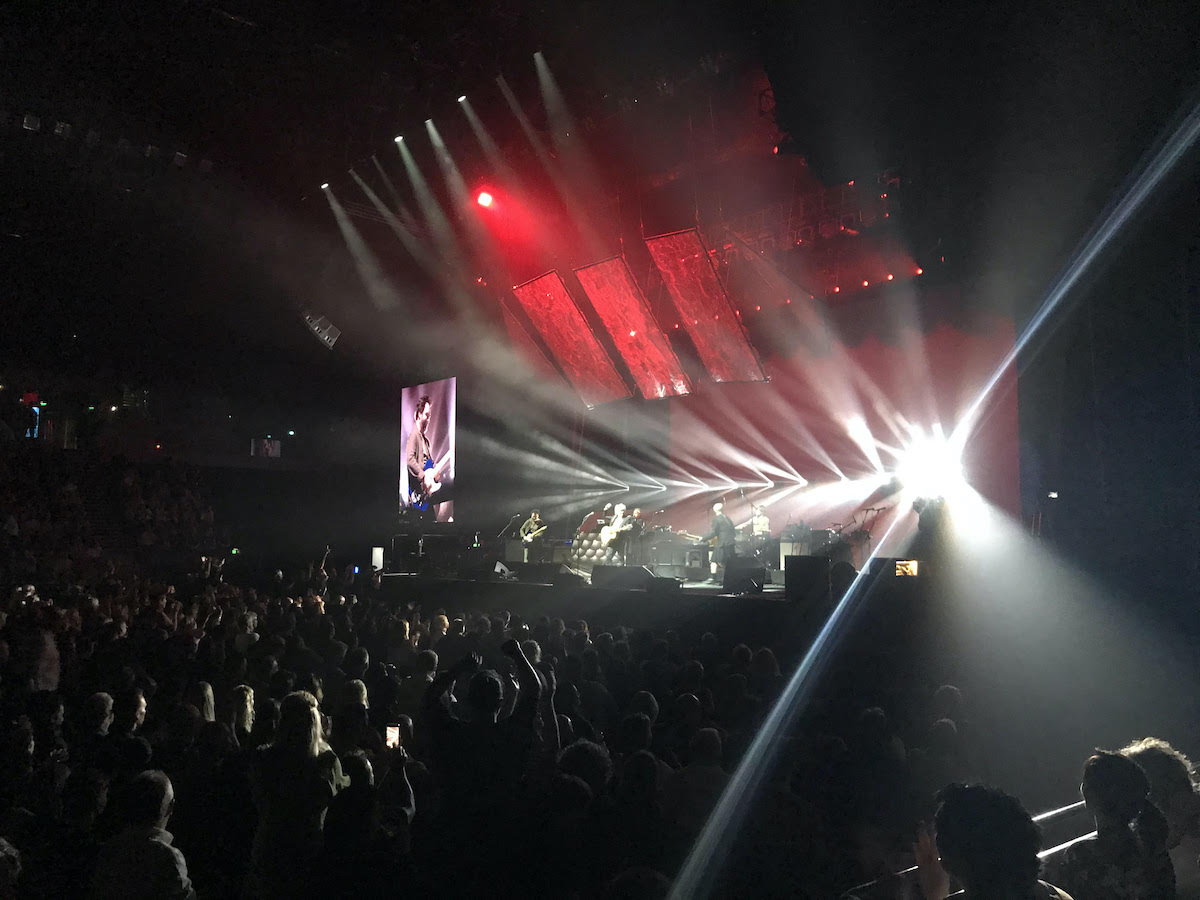
Back to the island…Around the world, music arenas are being used as mass vaccination centres to protect millions from Covid-19. Auckland’s Spark Arena, however, is one of the few that is able to play host to actual gigs these days, thanks to New Zealand’s handling of the pandemic so far. Here, people are getting back to doing what people did before the pandemic: making plans with friends on a Friday night, buying each other overpriced drinks and forgetting themselves while singing along to their favourite songs in the dark. It’s a massive privilege to do so.
And it’s clearly one not lost on whoever’s in charge of the PA system tonight, who chooses to blast out the late John Clarke’s unofficial Kiwi national anthem ‘We Don’t Know How Lucky We Are’ from the 1970s before Crowded House take to the stage. Tonight’s gig is a sell-out, meaning around 12,000 people are packed under one roof to hear one the country’s most-beloved bands, who have joined thousands of other Kiwis in returning home to the island since the pandemic began.
‘To The Island’ is also the name of the band’s latest single from forthcoming album ‘Dreamers Are Waiting’, which marks a new chapter for a band whose latter years have been touched by tragedy following the deaths of drummers Paul Hester and Peter Jones, in 2005 and 2012, respectively.
Founding members Nick Seymour and Neil Finn are now joined by the latter’s sons, drummer Elroy and guitarist and singer Liam, alongside keyboardist Mitchell Froom. Populating your band with your kids is a genius way to keep it looking fresh and youthful, helping Crowded House to avoid the pitfalls of so many long-in-the- tooth acts, whose arena gigs tend to suffer from self-indulgent noodling and bloated setlists.
– – –
– – –
It also doesn’t hurt that frontman Neil – now also a member of a little band called Fleetwood Mac – looks and sounds like he’s been drinking from the fountain of youth himself. His silver-grey mop of hair is so big and full it’s akin to a birds’ nest that’s been assembled from all the missing follicles atop the considerable number of bald blokes in the audience tonight.
The unmistakable, uplifting, crystal clear opening chords of ‘Weather With You’ set the tone for the night. Seymour – who like me has a better idea than most in the crowd as to what the rest of the world is going through at the moment having spent 2020 in Europe – is the visual embodiment of the joyful mood, bouncing around the stage in a black kilt looking like he’s having the time of his life.
By the second song, a raucous ‘Mean To Me’ from the band’s self-titled debut album, Neil Finn has already broken a guitar string, the sign of a good gig he says, before ripping into another classic from the same album, ‘World Where You Live’. Having formed in Melbourne in 1985, Crowded House are now on the verge of releasing their first new album in a decade and tonight’s set is peppered with a handful of snappy newies that are among the catchiest songs of the night, highlighting the band’s continued vitality.
Overflowing with character and energy, ‘Whatever You Want’, ‘Playing With Fire’ and ‘To The Island’ all bode well for ‘Dreamers Are Waiting’, which comes out in June having been recorded in LA before the pandemic bit and finished off remotely in 2020. ‘To The Island’ is a particular earworm, with lyrics capturing the mood of many returning Kiwis these days: “You found me lost in the chaos and confusion / You said it’s possible that we can be free.”
Perhaps understandably given the amount of time since people were last able to do this, the Auckland crowd is a little rusty when it comes to mass singalongs and is slow to get to its feet, despite the punchiness of tracks like ‘Whispers & Moans’ showcasing the band’s trademark, jangly guitars.
– – –
– – –
It could well be that they’re happy just to sit and enjoy the transportive, sparkling melodies of ‘Pineapple Head’, sounding evermore the antipodean cousin to The Beatles’ ‘Norwegian Wood’. Meanwhile, the pristine sound goes some way to making up for what arena gigs like these always lack in intimacy.
Curiously, it’s not until “the moodiest song of the night,” as Neil puts it, that the crowd does rise to its feet, as a lush ‘Four Seasons in One Day’ sweeps into ‘Private Universe’ against a dreamy on-screen backdrop that recalls the Milky Way. All of tonight’s visuals are closely tied to nature and New Zealand’s stunning landscapes, with the stage made up to look as if the band is playing in a volcanic crater.
The encore sees the band pay tribute to those on the frontline who helped make the band’s tour possible by keeping cases of Covid-19 in New Zealand’s community to a bare minimum. A stirring, piano-led cover of David Bowie’s ‘Heroes’ is dedicated by the band to these people, the very best of us, who are ensuring New Zealand remains one of the few places on earth where being in the same room as thousands of other people is a reality, rather than the premise of a fever dream.
Heroes around the world continue to put themselves at risk in order to keep people safe and the Bowie classic will justifiably soundtrack depictions of the fight against Covid-19 in years to come. By then, hopefully such untroubled, escapist and euphoric communal live experiences like tonight’s will have become commonplace again, not just in New Zealand, but around the world.
– – –
Words + Photos: Nico Franks
Join us on the ad-free creative social network Vero, as we get under the skin of global cultural happenings. Follow Clash Magazine as we skip merrily between clubs, concerts, interviews and photo shoots. Get backstage sneak peeks, exclusive content and access to Clash Live events and a true view into our world as the fun and games unfold.
Buy Clash Magazine
Read Morenzezmtqxmzatyzcyni00ntmyltk0n2etmmm2zdc0mmm4ywjinwy1ymi5nweymtaxzg

Highlights of this day in history: Britain enacts the Stamp Act on its American colonies; The ‘Garbage Barge’; Skater Tara Lipinski reaches the record books; The Beatles release ‘Please Please Me’; Composer Andrew Lloyd Webber born. (March 22)
Read Morenzezmtqxmzatyzcyni00ntmyltk0n2etmmm2zdc0mmm4ywjinwy1ymi5nweymtaxzg
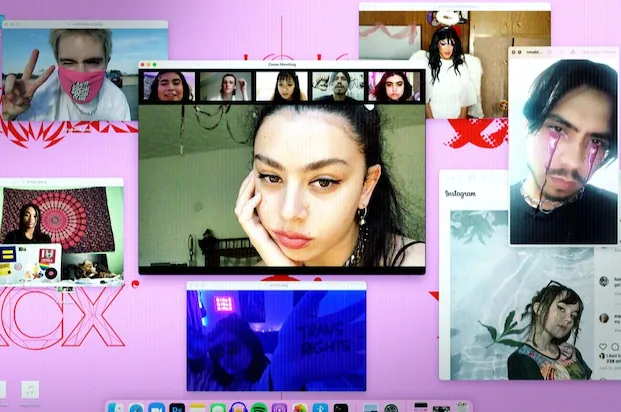
These are heady times for music documentaries. Questlove’s “Summer of Soul” won the audience and jury prizes at the Sundance Film Festival; docs about the Beastie Boys, Taylor Swift, the Bee Gees, the Go-Go’s, Tina Turner, Billie Eilish, Britney Spears and many others have gotten attention lately; high-profile narrative directors Peter Jackson, Edgar Wright and Todd Haynes have made recent or upcoming docs about the Beatles, Sparks and the Velvet Underground, respectively; and films on Tom Petty, Charlie XCX, Guy Clark and Poly Styrene are on the bill at the South by Southwest festival.
One advantage of docs like those has always been that they have a built-in, passionate audience of fans for the subject’s music – and in many cases, filmmakers aim their work at the devotees who will savor every detail and sing along with every word. I might embrace each nuance in “Bruce Springsteen’s Letter to You,” you might catch every offhand reference in “Beastie Boys Story,”and there might be enough of us that neither of those films needs to work hard to appeal to viewers who aren’t already fans (though there are pleasures awaiting them, too). Wright and Haynes no doubt want to use their films to make new converts for Sparks and the Velvets, but for many music docs that’s a luxury, not a necessity.
“Alone Together,” the Charli XCX film that premiered at SXSW on Thursday, falls into the category of a fan movie. But it’s not just a movie for the British singer-songwriters’ fans – it’s a movie about them, too. It’s a film that delves into an artistic collaboration between Charli and her audience, not between Charli and her fellow musicians. In the end, it’s as much a celebration of that audience as it is a portrait of the artist they love.
Also Read: ‘Tom Petty, Somewhere You Feel Free’ Film Review: Ragged Documentary Fits the Man and the Music
Directors Bradley & Pablo (Bradley Bell and Pablo Jones-Soler, music-video veterans making their first feature) came on board early in the pandemic, when the singer who was born Charlotte Emma Aitchison announced to her online fans that she was going to use the lockdown to make and release an album in five-and-a-half weeks. During the process, she announced on social media that she planned to share demos, rough mixes and the rest of the process with her fans, an avid community known as “Angels,” who had helped give her a huge LGBTQ following.
In the film, the announcement of her plan comes after an introductory section in which Charli essentially narrates a capsule version of her own history, doing so in a way that sounds a little rote but also touches on serious issues. “Even as I found success, I still felt lost and unfulfilled,” she says, setting up a theme of self-doubt and fragility that will run through the film. (She’s also the film’s executive producer.)
In her Zoom announcement of the album, Charli tells her fans, “I really need to be creative … to make sure my mental health is staying on track.” To document the process, she sets up multiple cameras in the Los Angeles home she shares with her boyfriend and two managers, while the directors also make use of extensive footage from and interviews with her fans.
Also Read: From Billie Eilish to the Bee Gees: Why Music Documentaries Are Booming
The film jumps from songwriting to demos to fans to videos and back; as befits a project based around social media, it’s full of quick hits and jittery cuts to the point where nothing really has an impact unless you’re obsessive about the people onscreen. It’s a look inside an insular (but inclusive) community that will no doubt enrapture members of that community even if it doesn’t quite connect with those outside the community.
The story of making the album that became “How I’m Feeling Now” isn’t always laid out clearly: At one point Charli has only written two songs and says she’s so far behind schedule that she’ll never finish in time, but before you know it she’s done exactly that. “It takes a lot to say this, but I’m really proud of myself,” she says when she finishes the album, and it’s easy to wish that we knew more about what she actually did.
But the heart of “Alone Together” isn’t her process but her struggles with depression and doubt, and the way in which she and her audience shelter, encourage and even save each other. While you can view the film as a companion piece to “How I’m Feeling Now” that is mostly aimed at people who love that album, it also has moments where it transcends that to become is an intimate examination of community in a time of isolation. And in those moments, the film has an impact that reaches far beyond what it shows you about one artist’s music.
Related stories from TheWrap:’Operation Varsity Blues’ Film Review: Doc Peels Back the Layers of the College Admissions ScamSXSW Film Director on How Festival Hopes to Stand Out From the Virtual CrowdDemi Lovato Says She Was Sexually Assaulted, ‘Left for Dead’ After 2018 Overdose
Read Morenzezmtqxmzatyzcyni00ntmyltk0n2etmmm2zdc0mmm4ywjinwy1ymi5nweymtaxzg